Starting a startup is like trying to build a spaceship while still figuring out gravity. You’ve got passion, a big idea, and maybe some coffee-fueled ambition—but let’s face it, getting that rocket off the ground needs more than just hope. That’s where startup accelerators swoop in, like superheroes for entrepreneurs. These programs give you mentorship, funding, and connections—basically, everything you didn’t know you needed but totally do. Whether you’re dreaming of being the next Airbnb or solving world hunger, accelerators like Y Combinator or Techstars can push you toward success. This list? It’s your cheat sheet for picking the best in 2025.
What Are Startup Accelerators?

Ever seen those action movies where the hero gets precisely what he needs to save the daily? Startup accelerators help businesses to do this. Usually running three to six months, they are transient projects aimed to help a company grow. You will have tools, mentoring, maybe seed money to assist you steer clear of novice mistakes.
Accelerators deal with businesses already having a minimum viable product (MVP) or at least a strong business model, unlike incubators, which concentrate on early-stage development and fostering ideas. Consider accelerators as a pressure cooker—fast, intense but well worth it. Programs like Y Combinator or 500 Startups challenge you to improve your proposal, hone your plan, and scale your activities in record time.
Therefore, an accelerator can be the difference your startup needs if it is ready to hustle.
Benefits of Joining a Startup Accelerator
Joining an accelerator isn’t just about free coffee and fancy office spaces (though that’s a nice perk). Here’s what you actually gain:
- Mentorship: Get advice from people who’ve been in your shoes and lived to tell the tale.
- Funding: Many accelerators offer seed money, usually in exchange for a small equity stake.
- Networking: Meet other founders, investors, and potential customers who can open doors you didn’t even know existed.
- Business Validation: Being accepted into a program like Techstars shows the world your startup is serious business.
It’s not just about the money; it’s about the relationships and credibility that come with it.
How to Choose the Right Accelerator
Choosing an accelerator is like picking a business partner—don’t rush it. Here are some tips:
- Industry Fit: Look for accelerators that specialize in your field. For example, FinTech? Plug and Play might be your jam.
- Funding Terms: Some programs take 7% equity, others want more. Do your homework.
- Location: Remote or in-person? A vibrant startup ecosystem like Silicon Valley could be a huge plus.
Check reviews, talk to alumni, and trust your gut. Picking the right accelerator can set your startup on the fast track to success.
Criteria for Ranking the Best Startup Accelerators

What makes one startup accelerator stand out from the crowd? It’s not just fancy branding or big promises. The real value lies in three critical factors: success rate, funding opportunities, and mentorship quality—key elements every startup founder should evaluate.
Let’s kick off with success rate. If a startup accelerator boasts unicorn graduates like Airbnb or Stripe, it’s a strong signal they know their stuff. Those success stories aren’t just good PR; they prove how effective the accelerator is in launching startups toward growth and profit.
Next up, funding. Many accelerators, such as Y Combinator, offer up to $500,000 in startup capital. That’s a game-changer for startups juggling expenses like software development or marketing campaigns. But be careful—check how much equity they’ll take. A startup should weigh its options before jumping in.
Finally, the backbone of any good accelerator: mentorship quality. A seasoned mentor can help startups avoid rookie mistakes and grow faster. Programs like Techstars connect startups with industry experts who bring real-world experience. It’s a golden opportunity to gain insights and sharpen your strategy.
In a nutshell, the best startup accelerators deliver measurable value, not just promises. Evaluate wisely—your startup’s future depends on it.
Top 10 Global Startup Accelerators for 2025
Choosing the right startup accelerator can be a game-changer. Whether you’re an early-stage founder or scaling your product, these accelerators provide funding, mentorship, and networking. Let’s break down the top 10 accelerators reshaping the global startup ecosystem.
1. Y Combinator
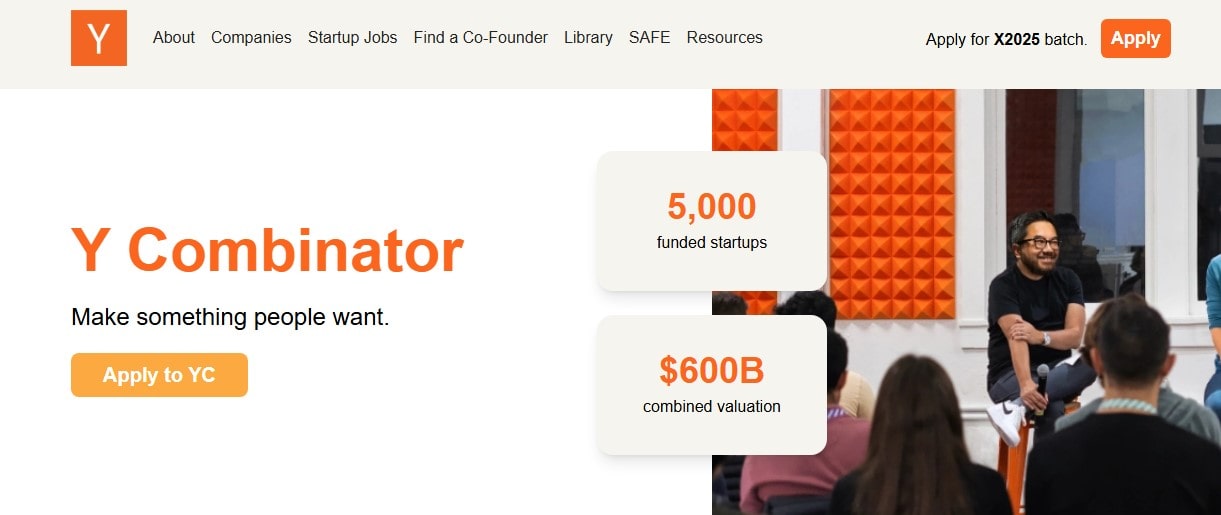
The pioneer of startup accelerators, Y Combinator (YC) has funded over 4,000 startups, including Airbnb and Stripe. YC offers a three-month intensive program in Silicon Valley, guiding founders through every stage of growth.
Best For: Early-stage startups aiming for rapid scaling.
Pros:
- High funding potential ($500K).
- Access to top-tier investors.
- Incredible alumni network.
Cons:
- Highly competitive (acceptance rate ~1.5%).
- Pressure-packed demo day.
Terms: $125K investment for 7% equity.
2. Techstars
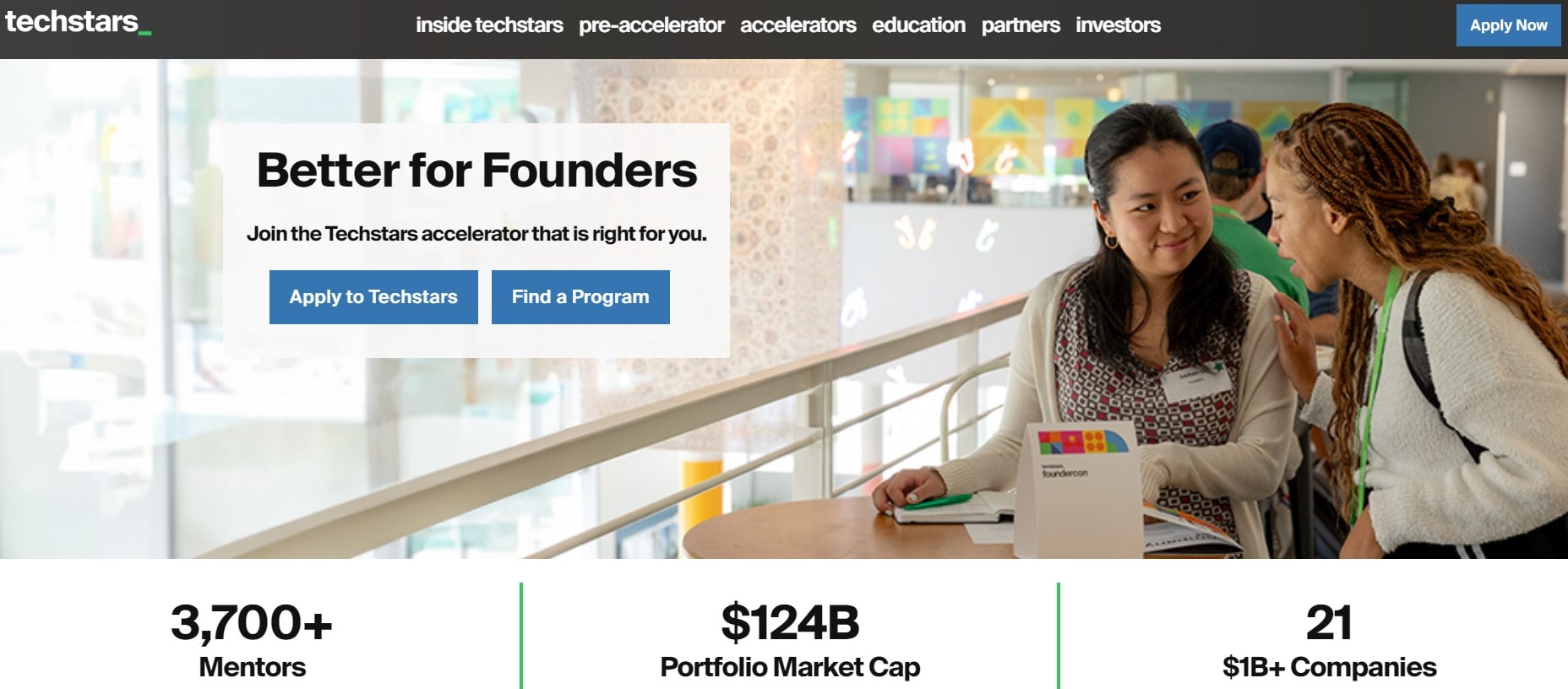
Operating in over 15 countries, Techstars connects startups with mentors and investors worldwide. Known for its community-driven approach, it has helped launch 3,500 startups.
Best For: Startups looking for global exposure.
Pros:
- Strong mentor-driven programs.
- Regional accelerator options.
- Lifetime access to resources.
Cons:
- High equity take (6-10%).
- Some locations may have fewer resources.
Terms: $120K for 6-10% equity.
3. 500 Startups
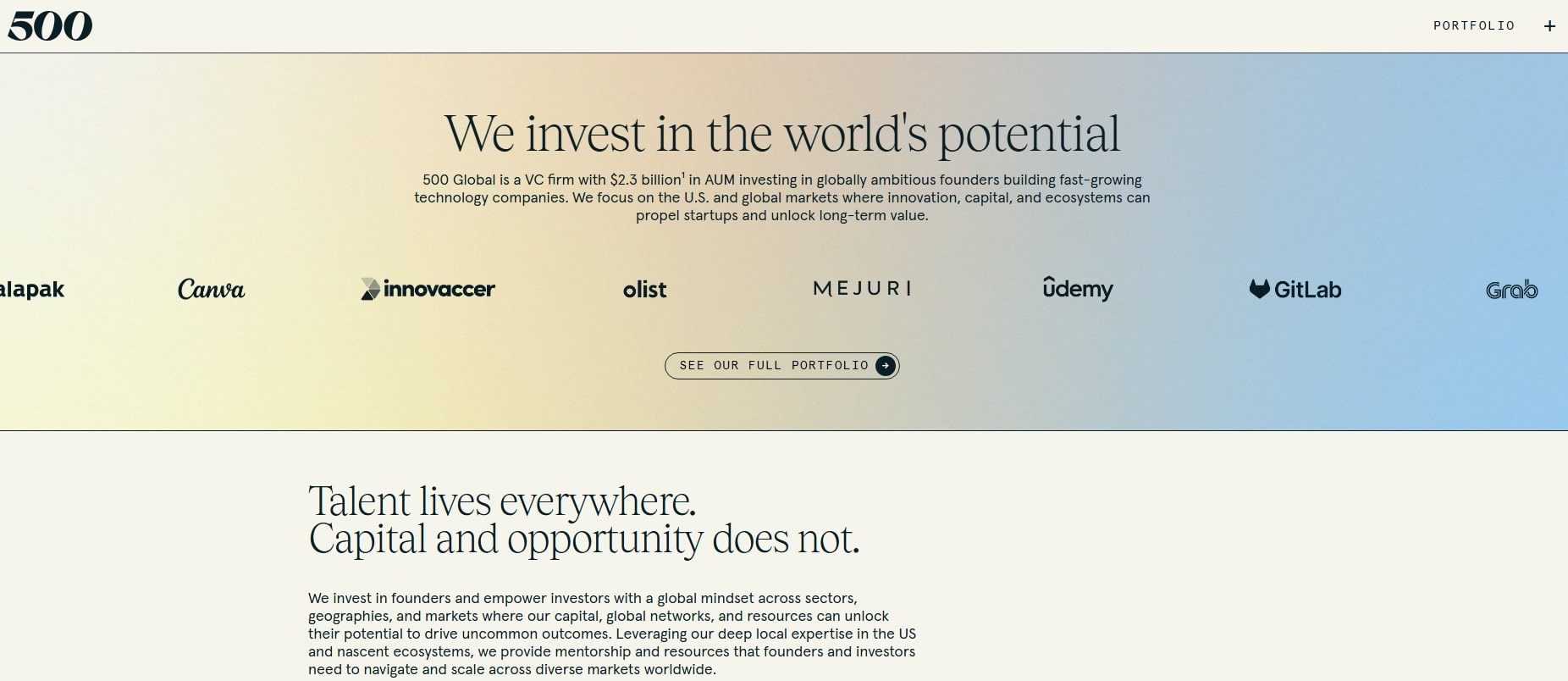
Based in San Francisco, 500 Startups is all about diversity and inclusivity. With over 2,500 startups funded, it’s ideal for founders from underrepresented backgrounds.
Best For: Diverse and innovative startups.
Pros:
- Focus on minority founders.
- Access to global markets.
- Strong emphasis on marketing growth.
Cons:
- Short program duration (16 weeks).
- Competitive application process.
Terms: $150K for 6% equity.
4. Plug and Play Tech Center
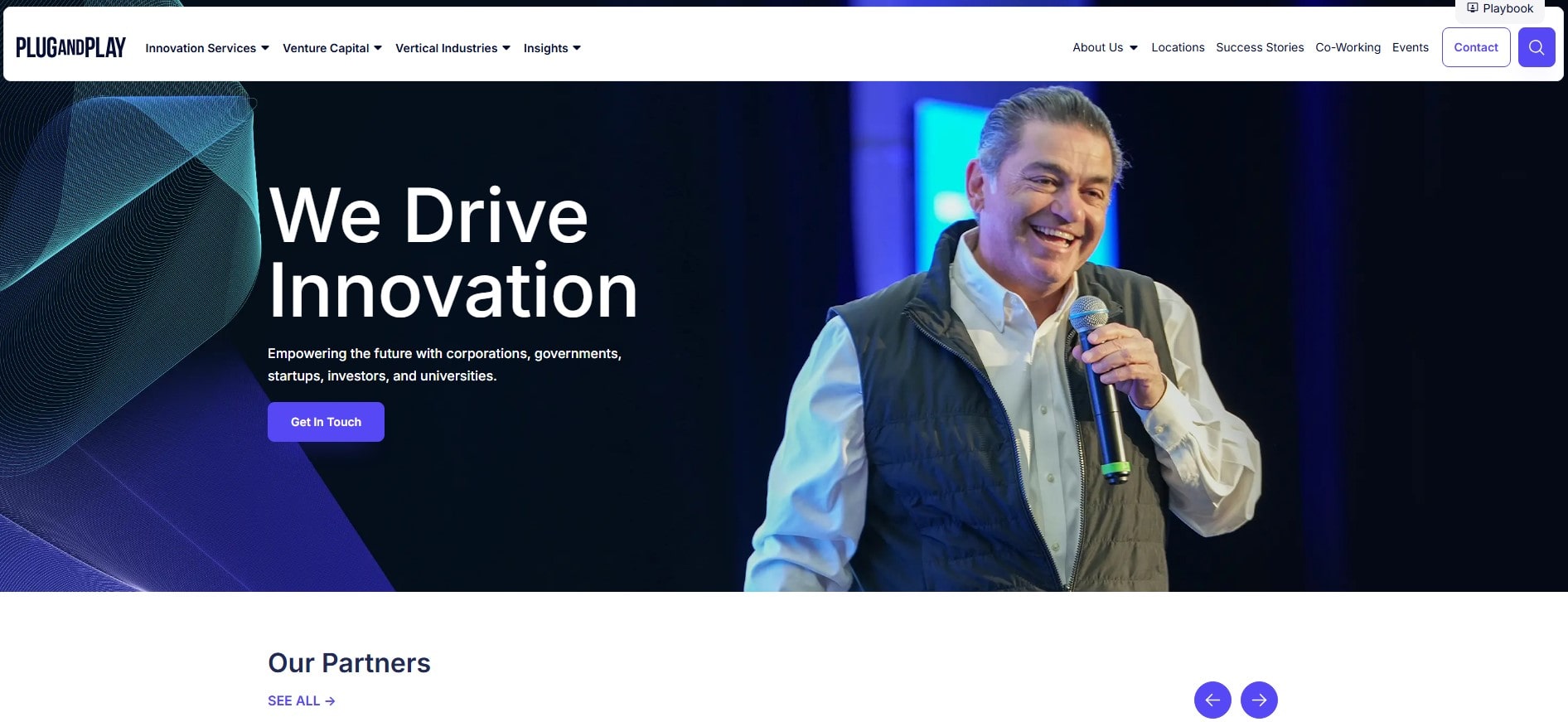
Located in Silicon Valley, Plug and Play connects startups to Fortune 500 companies. Its sector-specific programs (e.g., fintech, health) attract top startups globally.
Best For: Tech startups aiming for corporate partnerships.
Pros:
- Industry-specific focus.
- Partnerships with Google, Microsoft, and more.
- No equity requirement for some programs.
Cons:
- Crowded cohorts.
- Focused on B2B startups.
Terms: Investment varies by program.
5. MassChallenge
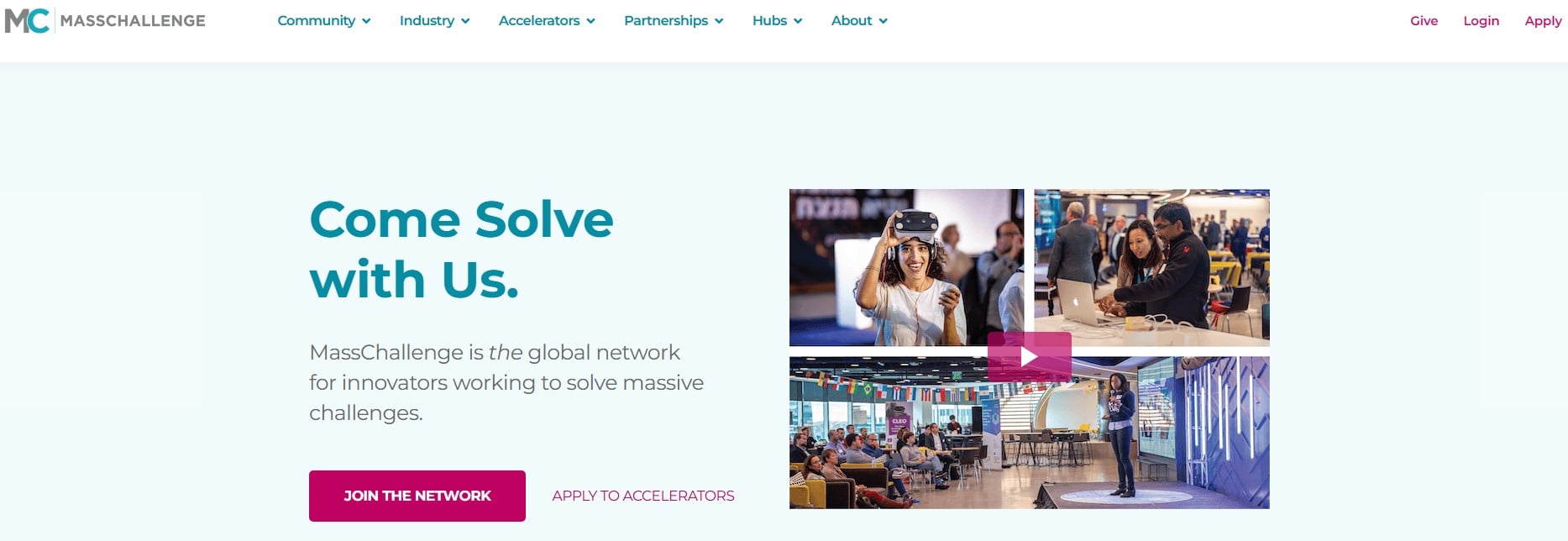
MassChallenge stands out by offering equity-free programs. Its mission is to accelerate startups without taking a stake in their success.
Best For: Founders wanting equity-free funding.
Pros:
- No equity taken.
- Wide range of industries supported.
- Strong focus on social impact.
Cons:
- Limited funding compared to others.
- Focus on early-stage startups only.
Terms: Equity-free; grants range from $50K to $100K.
6. SOSV
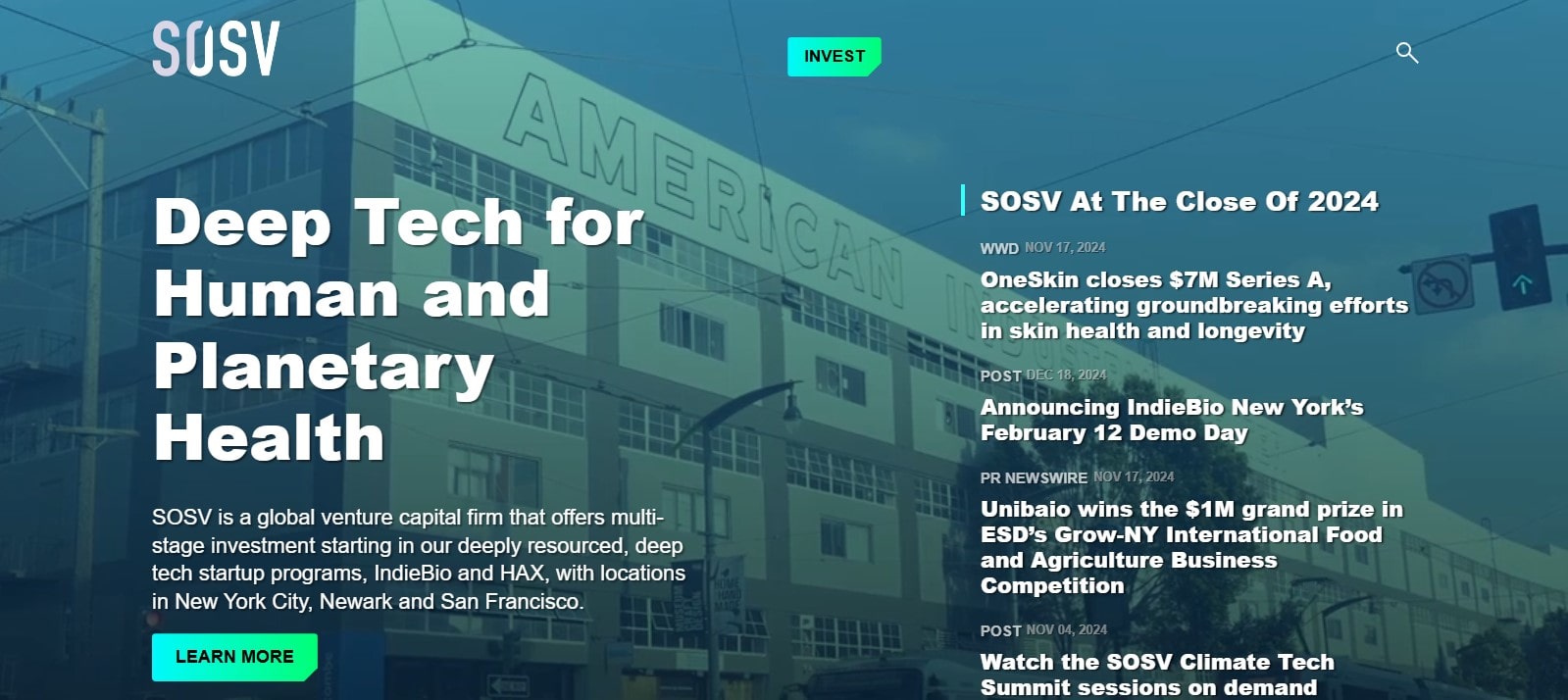
SOSV operates industry-focused accelerators like HAX (hardware) and IndieBio (biotech). With $1 billion in assets, it’s a powerhouse for niche startups.
Best For: Deep tech and biotech startups.
Pros:
- Access to cutting-edge labs.
- Global mentor network.
- Industry-specific expertise.
Cons:
- Limited to specific niches.
- Intense application process.
Terms: Up to $250K for 8-10% equity.
7. AngelPad
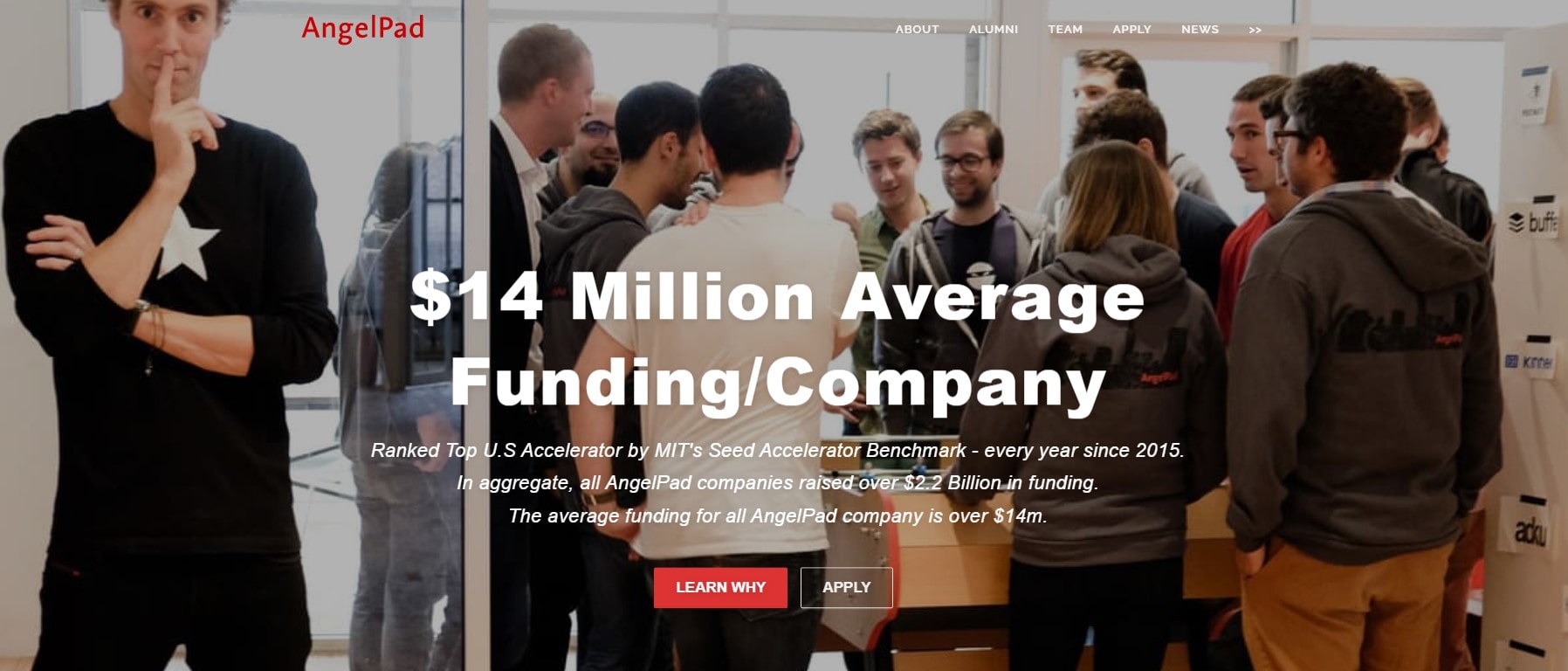
AngelPad is a boutique accelerator with a sharp focus on quality over quantity. It offers a 10-week program designed for early-stage startups.
Best For: Startups seeking personalized mentorship.
Pros:
- Small cohort sizes.
- Hands-on approach.
- Direct connections to top investors.
Cons:
- Fewer resources compared to larger accelerators.
- High-pressure program.
Terms: $120K for 7% equity.
8. Alchemist Accelerator
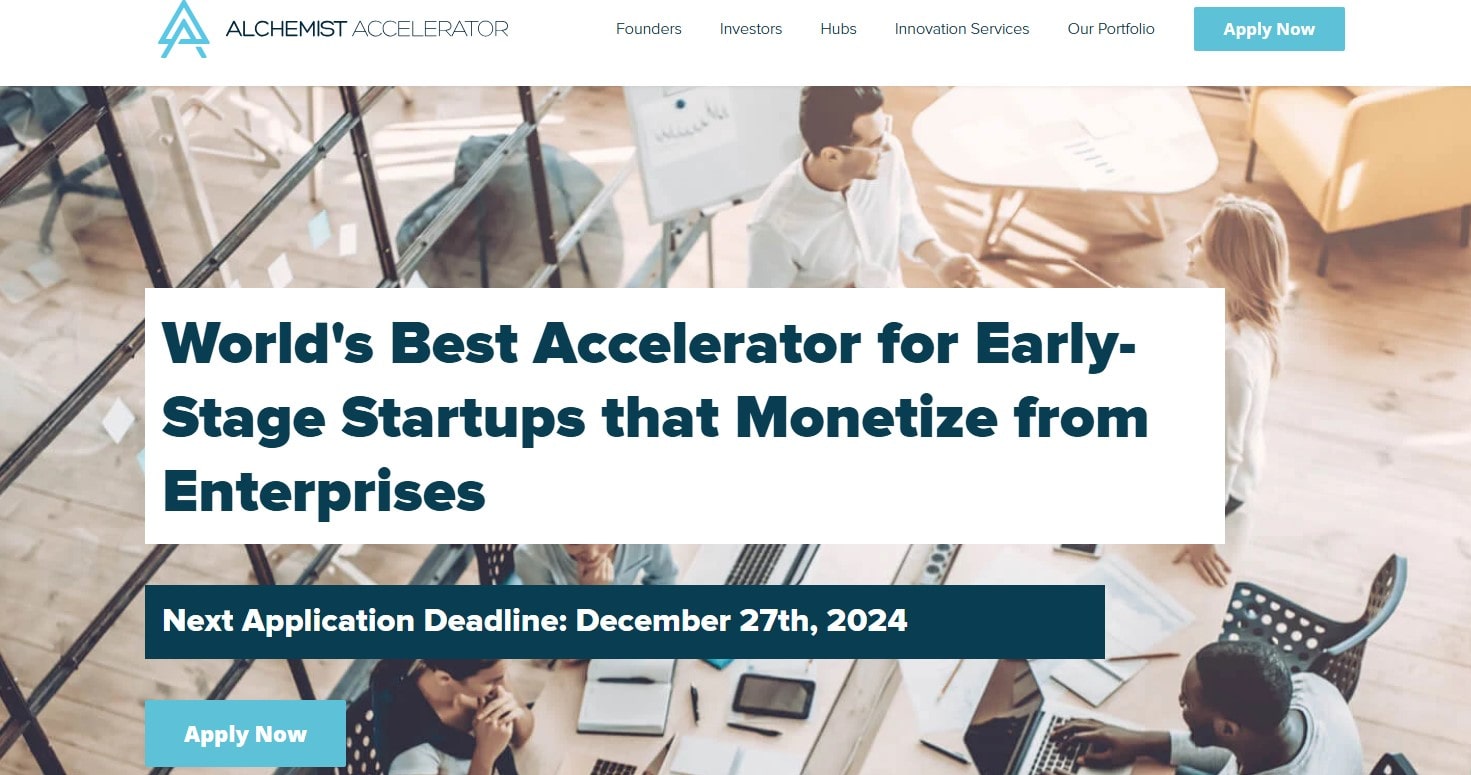
Alchemist is tailored for enterprise startups, offering a B2B-focused program that sharpens sales and scaling strategies.
Best For: Enterprise startups with B2B models.
Pros:
- High success rate (50% secure follow-on funding).
- Access to Fortune 500 clients.
- Strong mentorship in sales strategy.
Cons:
- Limited to enterprise-focused startups.
- Smaller funding rounds.
Terms: $36K for 5% equity.
9. Berkeley SkyDeck
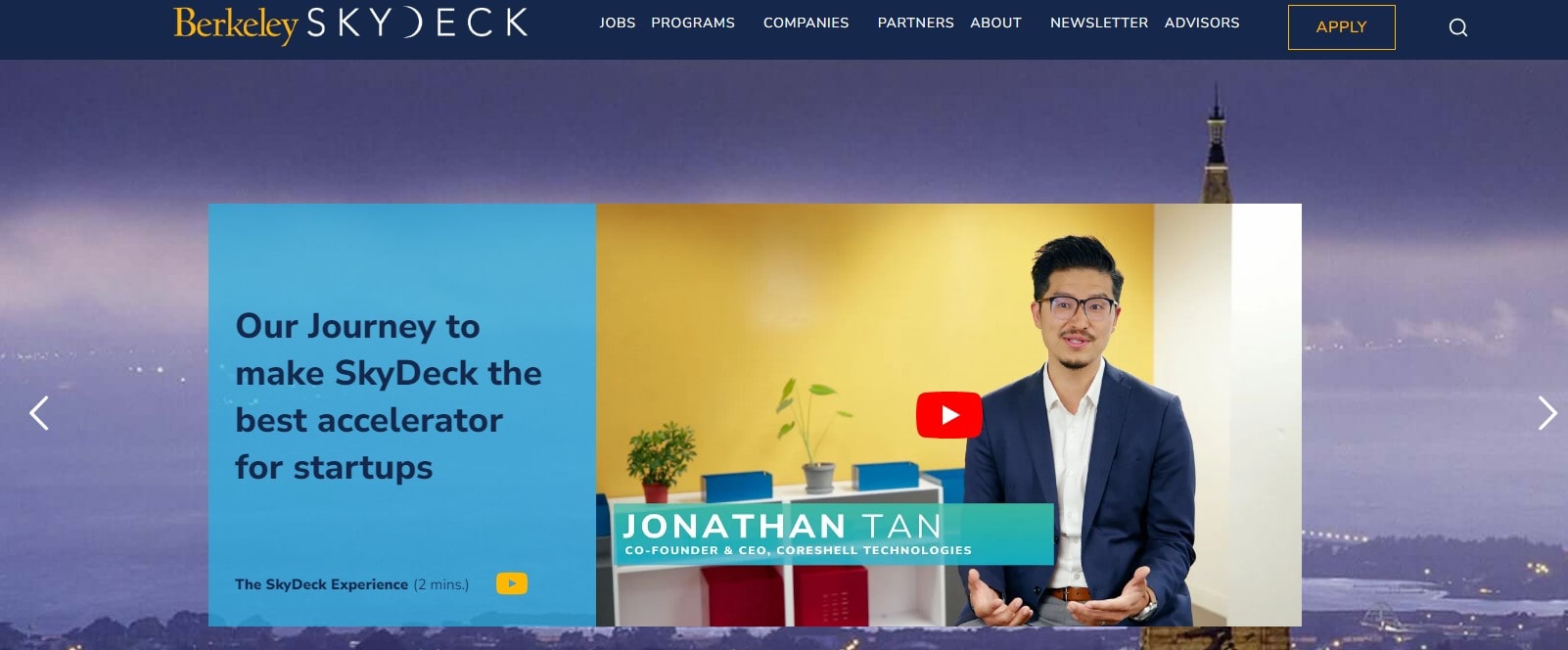
SkyDeck combines the innovation of UC Berkeley with Silicon Valley resources. It’s perfect for startups wanting both academic and business insights.
Best For: Startups focusing on R&D and innovation.
Pros:
- Access to Berkeley’s research labs.
- High-profile alumni network.
- Affordable equity terms.
Cons:
- Limited international presence.
- Long application process.
Terms: $105K for 5% equity.
10. Seedcamp

Seedcamp is Europe’s leading pre-seed and seed accelerator. It helps early-stage startups with scaling, funding, and international expansion.
Best For: European startups looking for early traction.
Pros:
- Strong European network.
- Focus on scalable tech.
- Equity-free options available.
Cons:
- Limited to Europe-based startups.
- High competition for limited spots.
Terms: €100K for 7.5% equity.
Whether you’re a first-time founder or seasoned entrepreneur, choosing the right accelerator is critical. These programs don’t just offer funding; they open doors to mentorship, networking, and industry insights. Find your fit, and take your startup to the next level.
Industry-Specific Startup Accelerators
Startups are not all the same. Some need extra-special care tailored to their industry. That’s where industry-specific startup accelerators come in. These programs don’t just throw generic advice at you—they focus on your niche, whether it’s healthcare, fintech, or artificial intelligence. And trust me, joining the right accelerator can give your startup the turbo boost it needs.
Healthcare Accelerators
If your startup is about revolutionizing healthcare, you need an accelerator that speaks your language. Dreamit Ventures is a big name here, offering programs for startups working on healthtech and medtech innovations. They’re all about connecting you to hospitals, insurers, and other major players. Another top pick is Rock Health, which focuses on digital health startups. Fun fact: Rock Health alumni raised over $1 billion in funding last year!
Fintech Accelerators
For fintech startups, money talks—literally. SixThirty specializes in financial tech, giving startups $100,000 in seed funding plus connections to major financial institutions. Then there’s Village Capital, which offers an innovative peer-selected funding model. Founders actually vote for the most promising startups in the program. Sounds pretty cool, right?
AI and Tech Accelerators
Artificial intelligence is hot, and so are the accelerators supporting AI startups. AI21 Labs is making waves with its cutting-edge NLP-focused program. For more hands-on support, StartX, based at Stanford, is a solid choice. They’ve helped over 1,000 startups turn ambitious ideas into reality.
Sustainability-Focused Accelerators
Building a greener future? Elemental Excelerator is the go-to for startups tackling climate challenges. They’ve supported over 130 companies solving real-world sustainability problems. Urban-X, another great option, focuses on reimagining city living with smart, eco-friendly solutions. Think clean energy, smart buildings, and better public transport.
By choosing an accelerator that fits your industry, you’re not just joining a program—you’re joining a movement tailored to your startup’s goals.
Regional Leaders in Startup Acceleration
When it comes to startup accelerators, geography plays a huge role. Each region has its own top programs that reflect the local startup culture, challenges, and opportunities. From Silicon Valley to Santiago, let’s dive into the regional stars of startup acceleration.
North America
No surprise here—North America leads the way in startup innovation. Capital Factory, based in Austin, Texas, is a hub for tech startups. Their motto? “The center of gravity for entrepreneurs in Texas.” With $1 billion in funding raised by its alumni, it’s a game-changer. Another standout is Amplify.LA, perfect for startups in the entertainment and media sectors. Located in sunny Los Angeles, this accelerator connects startups with Hollywood and Silicon Beach investors. The results? Over 90% of their alumni secure follow-on funding.
Europe
Europe brings its own flavor to the startup world. Seedcamp, often called the “first investor” in many European startups, offers an intense 4-month program and access to a network of 1,000+ mentors. Want results? Alumni have raised over €1 billion! Then there’s Startupbootcamp, famous for its industry-specific programs in fintech, healthtech, and even food tech. Whether you’re in London or Berlin, this accelerator has a spot for you.
Asia
Asia is the rising star in the startup ecosystem. In India, Startup India is a government-backed program offering grants, mentoring, and coworking spaces. Since its launch, they’ve supported 50,000+ startups! Across the border in China, Chinaccelerator stands out. Focused on scaling startups into the massive Chinese market, they’re backed by SOSV, a global VC firm. With its connections, breaking into China feels less like climbing Everest and more like a walk in the park.
Latin America
Latin America’s startup scene is booming. Startup Chile, a government-funded accelerator, attracts entrepreneurs worldwide with its equity-free funding and vibrant ecosystem. It’s helped over 2,000 startups, with notable names like The NotCompany making waves globally. Meanwhile, NXTP Labs, based in Buenos Aires, offers a tech-driven program focusing on AI, blockchain, and fintech. It’s not just an accelerator; it’s a ticket to Latin America’s growing innovation hub.
From North America’s tech giants to Asia’s booming markets, these accelerators are more than just programs—they’re your partners in turning big ideas into reality. Which region fits your startup dreams?
How to Apply to a Startup Accelerator
Joining a startup accelerator can feel like preparing for Shark Tank. But don’t worry, it’s less dramatic and more straightforward when you know what they want. These accelerators are scouting for startups that scream potential—not perfection. Your job? Prove your startup could be the next Uber or Canva. Let’s break it down step by step to help you shine and avoid rookie errors.
Preparing Your Application
First things first—your startup application needs to impress. Nail these essentials:
- A functional MVP (Minimum Viable Product): Forget fancy; it just needs to work. Accelerators want proof your startup idea isn’t all talk.
- Solid market research: Show you understand your target audience and how your startup fits into the market. Back up your claims with data.
- Strong team credentials: Got a tech whiz or marketing guru on board? Highlight their experience and explain why your startup team is a dream team.
Don’t underestimate your pitch deck. It’s your startup’s first impression. Use tools like Canva or Pitch to create a deck that’s clear, engaging, and visually cool.
Common Mistakes to Avoid
Even promising startups fail to impress accelerators if they make these mistakes:
- Unclear business model: Accelerators aren’t mind readers. Clearly explain how your startup generates income or plans to soon.
- No scalability: If your startup idea only works in your local area, think bigger. Accelerators want global potential.
- Ignoring feedback: Rejected before? Take the feedback, improve your startup pitch, and apply again. Many successful startups faced rejection first.
Nail your application, and you’re on the road to startup success. The right accelerator can take your startup from unknown to unstoppable.
Success Stories from Top Accelerators
Ever wonder how a little startup might grow to into a billion-dollar company? Accelerators like Y Combinator or Techstars often began many success stories. These initiatives are game-changers for driven entrepreneurs, not only sources of money. Let us explore some inspirational paths.
Airbnb: Global Empire from Air Beds
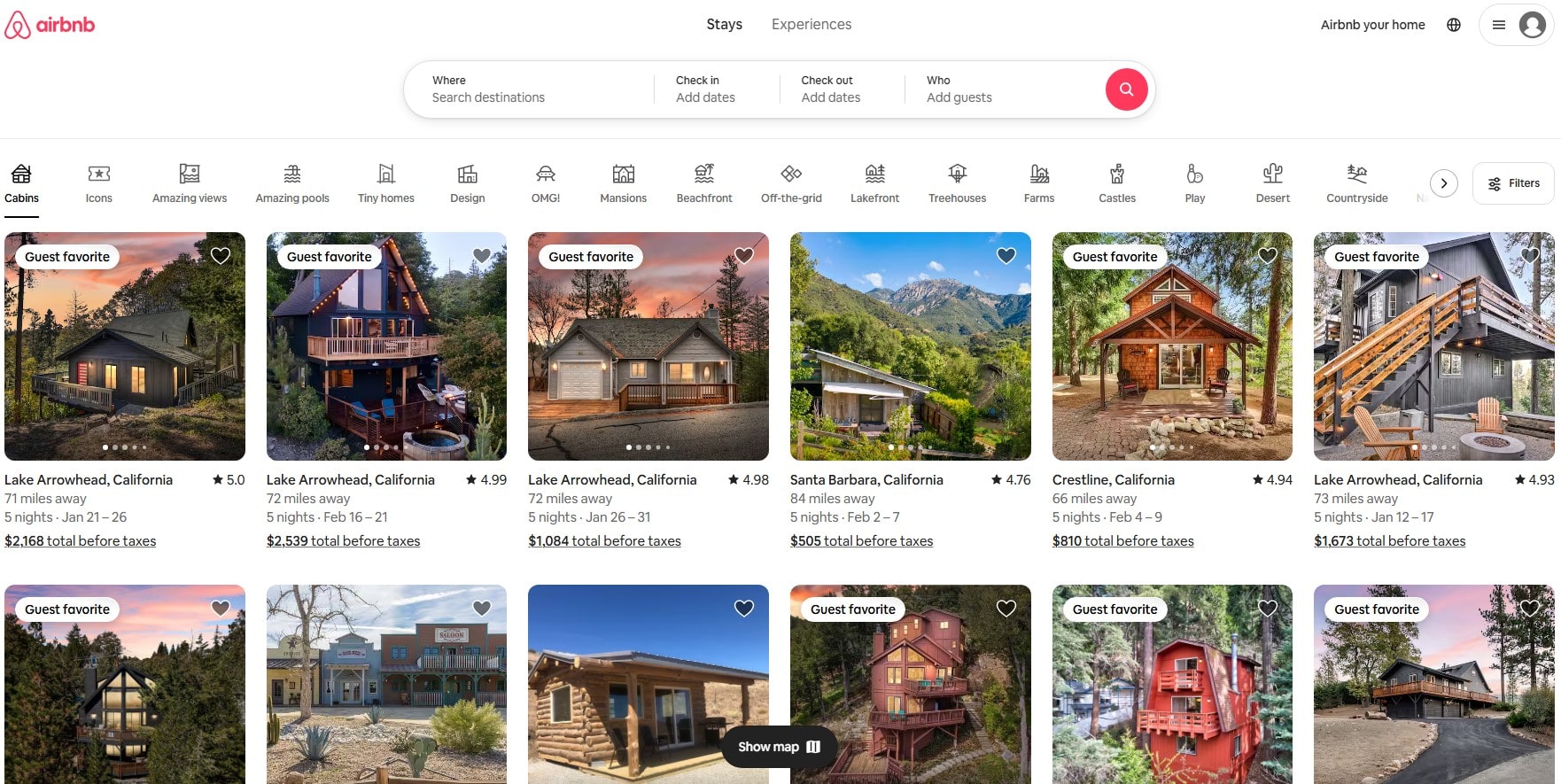
Back in 2008, Airbnb was only a wild concept about renting air mattresses to total strangers. Sounds strange, just as it is. But Y Combinator sensed promise. The entrepreneurs honed their pitch, changed their product, and gained knowledge on scaling after accelerating. Fast forward to now: Airbnb, a $75 billion behemoth transforming travel and welcoming millions of guests all over.
Stripe: Handling Payments plain
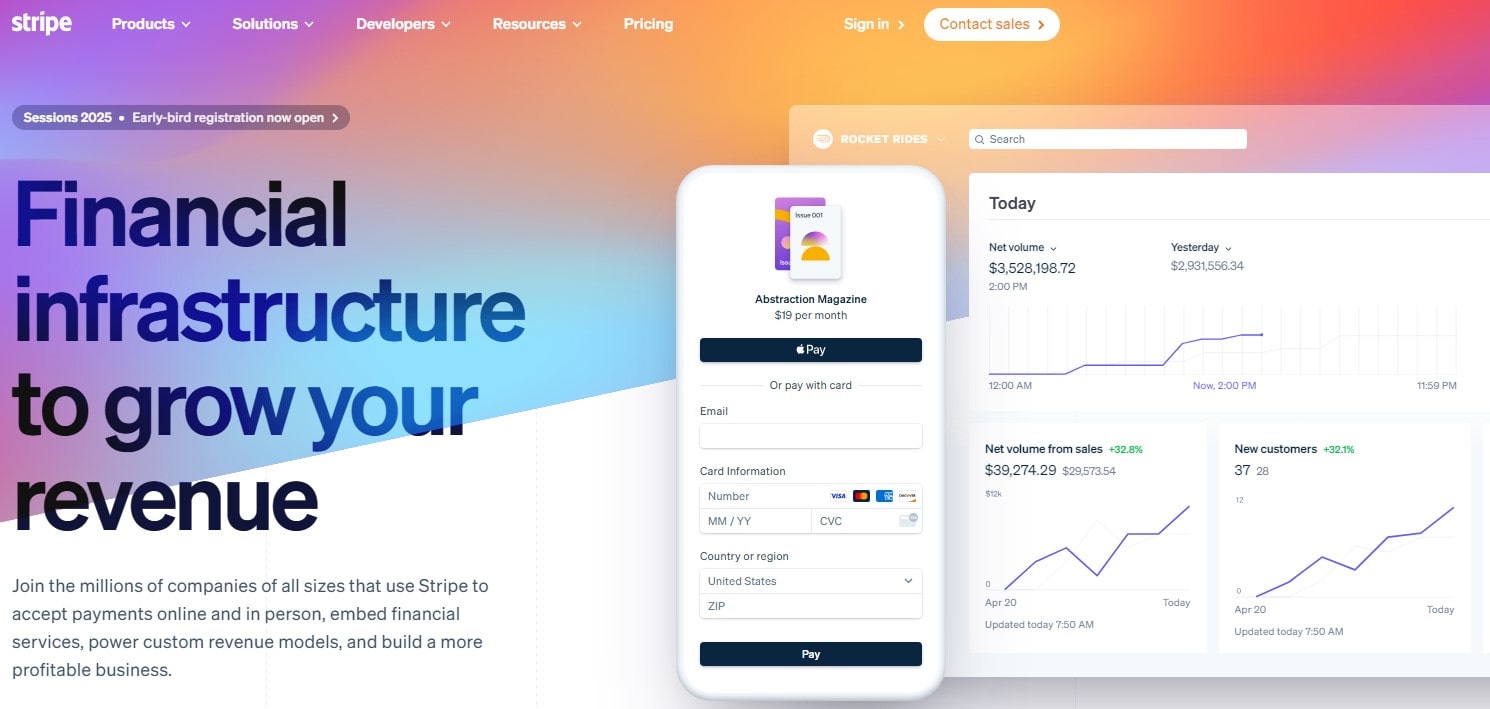
Stripe began with one main objective: frictionless internet payments. Their path started with Y Combinator in 2010 and yielded priceless funding and mentoring. The accelerator enabled Stripe to interact with big companies and hone their plan. Now, with a valuation above $50 billion, Stripe fuels purchases for businesses including Amazon and Shopify. Not terrible for a startup that used to code out of a small apartment.
SendGrid: Email Simplification for New Companies
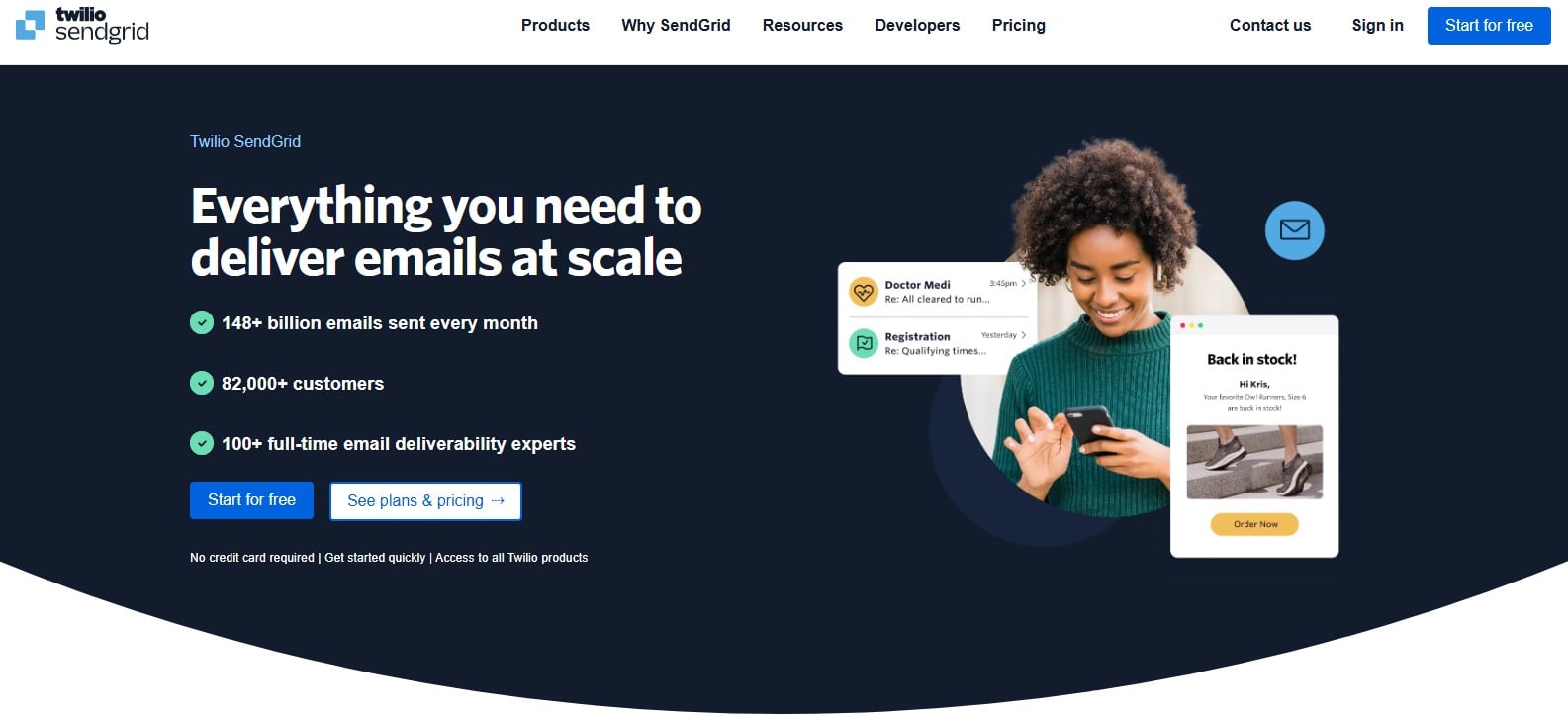
SendGrid joined Techstars in 2009 to address a challenge every startup encounters—email deliverability. Their quick scaling was made possible by the accelerator’s direction, and their value to companies all around become indispensable. Fun fact: SendGrid handled a trillion emails before Twilio paid $2 billion for acquisition.
These legends show how accelerators turn startups into industry leaders. Had a great concept? Your startup might be the next legendary on this list with the correct accelerator.
Last Thought
Choosing the correct accelerator transforms your startup’s path rather than only provides a step-forward. Whether your dream is of being the next Airbnb or Stripe, an accelerator will help you to develop, network you with business experts, and hone your business strategy. Recall that mentoring, the network, and experience count just as much as money.
So slow down, investigate the choices, and discover ideal fit for your startup. Every great company was, after all, only a concept merely waiting for the correct encouragement. Make your startup the next great narrative, instead.
